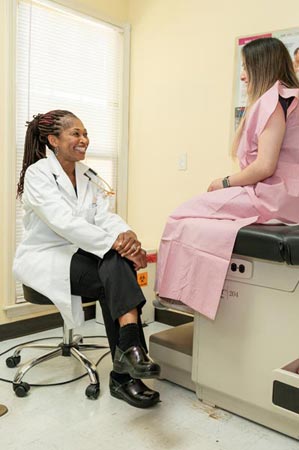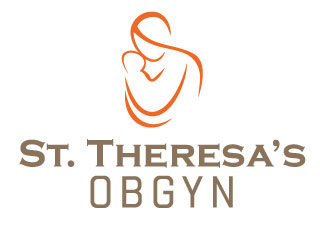Obstetrics

We focus on educating our pregnant mothers on the need to stay healthy which will translate to a healthy baby. We are with you throughout your pregnancy, delivery and post partum.
The Importance of Prenatal Screenings
If you are pregnant for the first time, prenatal screenings may seem daunting. However, they become much more manageable once you know what they entail. More importantly, prenatal screenings are essential to making sure you and your baby are healthy. At St. Theresa's OBGYN, we want to stress the importance of prenatal screenings. As a Gynecologist in Lawrenceville GA, we would like to explain what screenings to expect during each trimester.
What are Prenatal Screenings?
Prenatal screenings are a variety of tests used to determine the condition of the baby. They also figure out the baby's risk of a health condition. Some examples of prenatal screenings include:
- Blood pressure tests
- Blood tests
- Urine tests
- Ultrasounds
Your doctor may recommend different prenatal screening tests at various times throughout your pregnancy. Some may be more necessary than others, depending on your situation.
First Trimester Screening Tests
Your doctor will perform the first prenatal screening tests as early as your first trimester.
Ultrasound
An ultrasound is non-invasive and safe. The doctor uses soundwaves to figure out the size and position of the baby and confirm how far into the pregnancy you are. Ultrasounds can also help find bone or organ abnormalities developing.
Blood Tests
Blood tests are used to screen for many potential issues. For example, they can test for high plasma protein-A and chorionic gonadotropin. High levels of either protein can mean that there is a higher risk of a chromosomal abnormality. Doctors use blood tests to determine your blood type, Rh factor, and anemia.
Second Trimester Screening Tests
More prenatal screening tests occur during your second trimester. They include:
Another Ultrasound
The second ultrasound is more detailed. It's used medically to spot any developmental issues. However, it's also a great time to see the baby's fingers and toes as well!
Quad Marker Screening Test
This is a blood test that measures four of the fetal proteins. A quad marker screening test can assess your baby's risk of having Down syndrome, abdominal wall abnormalities, and neural tube defects. Your Gynecologist in Lawrenceville GA might offer this test if you started prenatal care too late to receive earlier tests. The quad marker screening test has a lower detection rate than earlier screening tests, so it's essential to begin your prenatal care early!
Glucose Screening
Even if you have not had diabetes before your pregnancy, gestational diabetes can still develop. Gestational diabetes can increase your need for a C-section or cause your baby to have higher blood sugar after delivery. To test for gestational diabetes, your doctor will schedule a glucose screening test. The test starts by getting your blood sugar level while fasting, then checking your blood sugar periodically after drinking a sugary solution.
Amniocentesis
During amniocentesis, your doctor will take amniotic fluid from the uterus. Amniotic fluid has the same genetic makeup as the baby, so it can be used to test for various things. Your doctor might offer amniocentesis to you if you:
- are 35 or older
- had a chromosomal abnormality during a previous pregnancy
- have a family history of a genetic disorder
- are a known carrier of a genetic disease or your partner is a known carrier
Third Trimester Screening Tests
During the third trimester, a Group B Streptococcus test occurs. Group B Streptococcus can cause severe infections in both pregnant women and newborns. To test for Group B Streptococcus, your doctor will take a swab from your vagina and rectum. If the test results come back positive, you will be given antibiotics during labor to reduce the risk of your baby contracting Group B Streptococcus.
Why Prenatal Screening Tests are Important
It may seem scary to receive all these tests throughout your pregnancy. However, they're crucial to ensuring the health of your baby. By performing prenatal screening tests, you can have peace of mind that your baby is developing as it should. St. Theresa's OBGYN is by your side every step of the way. From the first trimester tests to delivery, your health and your baby's health is our main concern.
